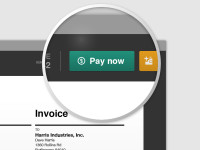The CRTC will release its latest decision in the TalkTV consultation later today as it announces much-anticipated plans to require cable and satellite companies to offer consumers the option of picking the television channels they want without requiring them to purchase expensive bundles. The decision, which builds on earlier rulings that focus on a more competitive marketplace, will fulfill the government’s promise to bring in consumer choice for television packages, which was a prominent part of its 2013 Speech from the Throne.
The specifics are yet to come, but the CRTC will likely require distributors to offer a basic service of Canadian and mandatory channels at a relatively low price (a 2014 working document suggested a cap of between $20 – $30/month), offer consumers a pick-and-pay option, and adjust the Canadian content requirement for bundles.
Consumers will emerge as the clear winners, benefiting from increased choice and the potential to lower their monthly bills. Yet the CRTC decision will undoubtedly be greeted by doomsayers who will argue that pick-and-pay will increase prices and decrease choice (because some channels will fold).











